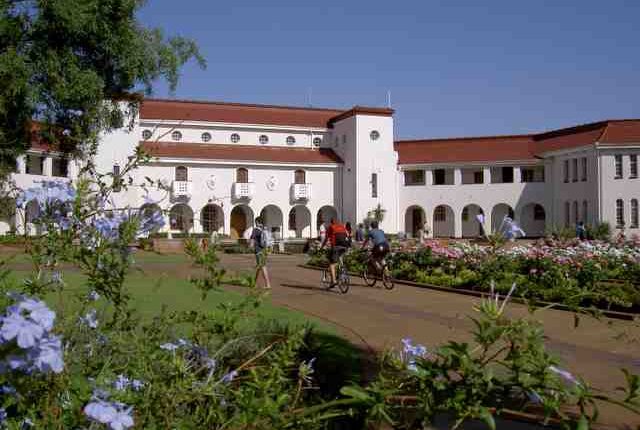North-West University School of Music Presents Schubert’s Schwanengesang
North-West University (NWU) academics Thomas Erlank (tenor) and Prof Tinus Botha (piano) represented the School of Music in a performance of one of Schubert’s great vocal masterpieces, Schwanengesang (swan song).
The performance took place on Sunday, 10 September at 13:00 at the NWU Conservatory Hall in Potchefstroom.
Schubert is known for being a master at marrying word with music, having created incredible works of art. Schwanengesang is a cycle of 14 songs composed by Franz Schubert in 1828, the final year of his life. It was published posthumously in 1829, and it is considered a landmark in the history of the German art song.
The NWU’s School of Music and Conservatory is a prominent and highly regarded institution for tertiary music study in South Africa. The performance was also Thomas’s first recital at the NWU as a permanent member of staff.
Thomas says he has been surrounded by music all his life – whether it was being busy with school choirs, playing instruments, or performing in a cappella groups.
“Music has played a significant role in my life. During my first year at university, I was studying something else, but my path eventually led to music. The penny really dropped when I was offered a scholarship to study at the Royal College of Music – turning what used to be a dream into reality.”
He adds that, within the spectrum of Western art music, German lieder lies the closest to his heart. “It brings great artistic satisfaction on a personal level, especially when sharing the stage with such a wonderful duo partner, Prof Tinus Botha.”
He believes this type of recital brings value to the School of Music Concert Series in the sense that such works aren’t often performed.
“Excerpts from cycles are often done as part of recitals or examinations, but to present a complete cycle is a big task and hence not often done. My aim was not to only bring great works from the past to the concert stage here at the NWU, but also the music of living composers,” he adds.

